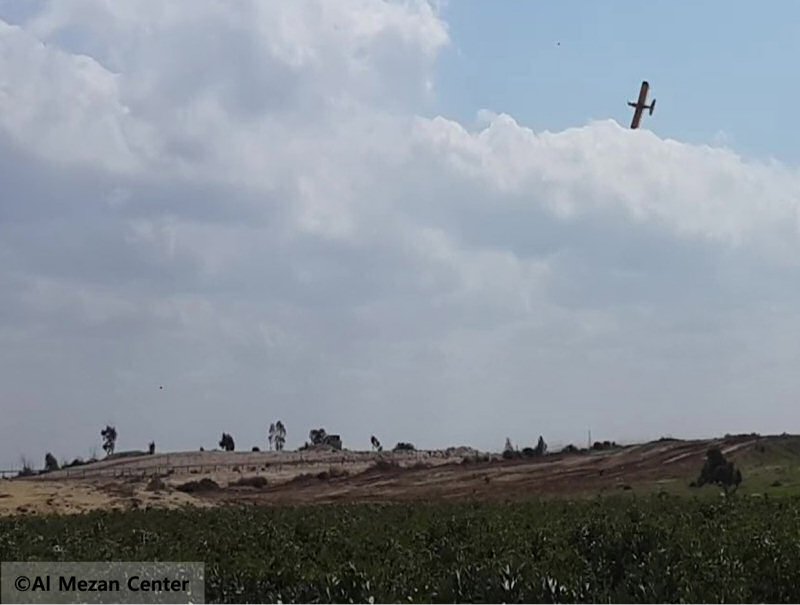The subject of this briefing paper is the chemical spraying of farmlands, by Israeli forces, in the conflict-stricken Gaza Strip. The practice affects the livelihood and right to food of the population, while potentially harming Gaza’s fragile environment and decaying infrastructure. Despite the evident impact on the population’s human rights, Israeli military authorities have rejected calls to end this practice or to be fully transparent about the chemicals used.
In 2017, Palestinians marked the tenth consecutive year of Israel’s closure/blockade. The two million inhabitants have endured three major military assaults between 2008 and 2014, with much of the destruction not corrected. In an environment of perpetual closure/blockade—rooted in severely restricted movement of people and goods and marked by chronic lack of electricity, water and sanitation—Gaza’s population is left with a limited amount of resources to engage local capacities.
Gaza’s farming community experiences the force of Israeli policies and practices used to enforce the closure/blockade. In accordance with these policies, the land within the Israeli-imposed access restricted areas, or “buffer zone”, has been leveled, amounting to the destruction of 35 percent of agricultural land. The access restricted areas is designated the “high risk” zone, where live fire is used to enforce movement restrictions. In this area, the farmers plant low-growing, leafy vegetable crops. This is the area where the Israeli forces implements its aerial spraying of chemicals.
The spraying is reported to be creating a lasting change to the chemical composition of entire swaths of arable land, reaching up to 700 meters beyond the designated “buffer zone”. The consequences of these actions are marked economic harm to farmers and the farming industry, and could also severely damage the environment and public health, both of which are already in a precarious state due to the closure/blockade.
This report highlights cases brought forward by Palestinian farmers living in the affected areas whose farmlands, access to food, and livelihoods have been harmed by the aerial spraying. In recognizing that the rights that have been violated in relation to these incidents cannot be viewed in isolation, this report briefly outlines relevant issues faced by other communities in Gaza who are reliant on the land and sea for their livelihoods, as well as the applicable legal framework.
As the spraying activities continue without accountability or redress, Al Mezan condemns the systematic violation of international law by the Israeli forces and calls on the international community to take effective measures to uphold the principles of international law, and demands cessation of the use of agrochemicals in Gaza.
Relevant international organizations and agencies, the World Health Organization and the UN Food and Agriculture Organization, must take measures to stop aerial spraying of agrochemicals, and set up mechanisms that will help farmers manage their losses.
(Edited for the IMEMC by c h r i s @ i m e m c . o r g)
02/15/18 Max Blumenthal in Gaza: Netanyahu Faces Scandal, Palestinians a Crisis

